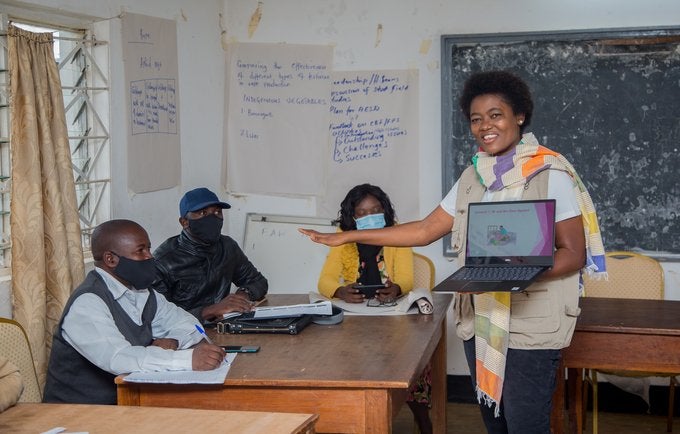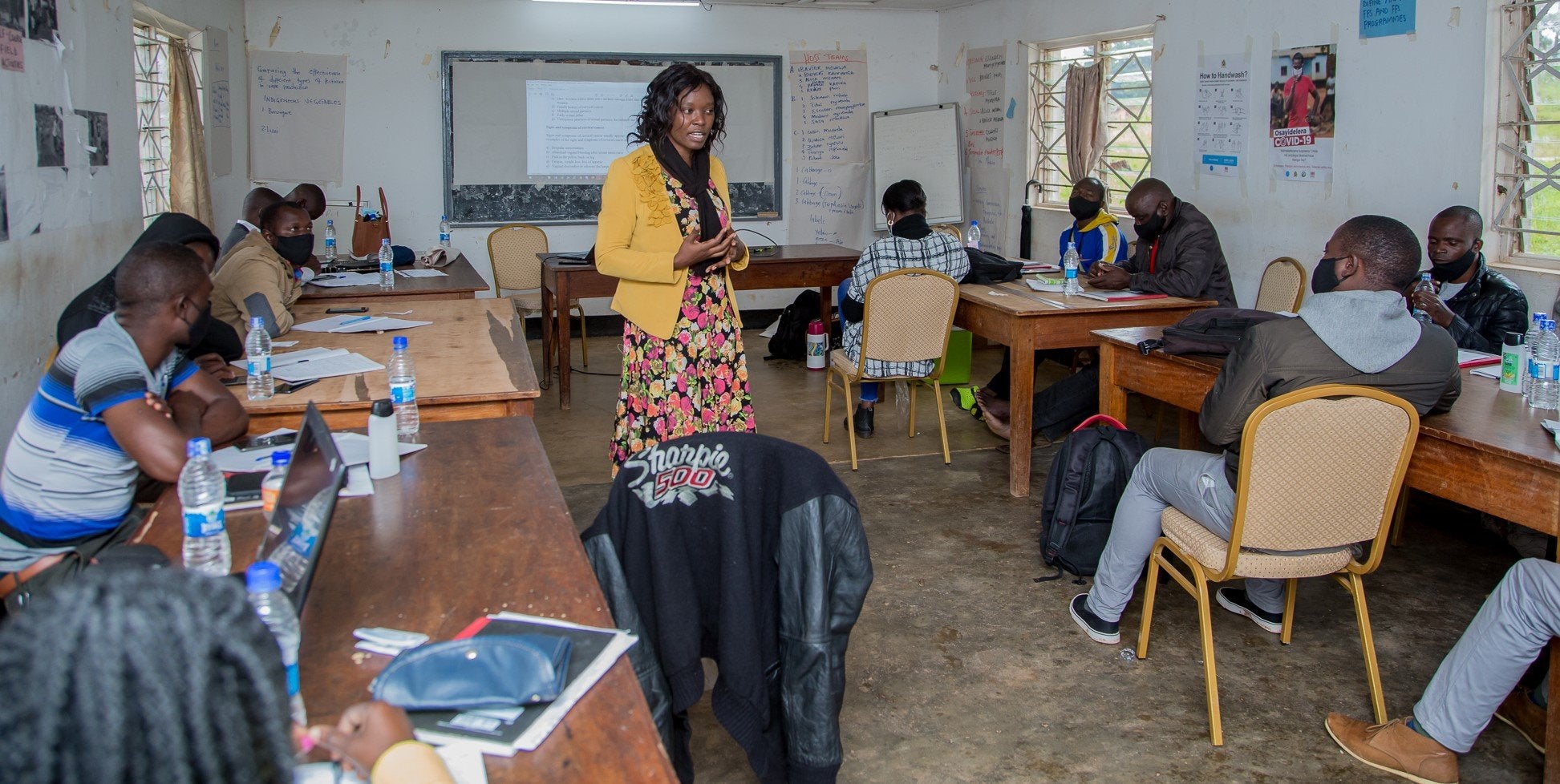MALAWI—Agnes Mwale*, 45, farms a small piece of land a stone's throw away from her village. Until she developed health problems that affected her ability to work in 2019, she was able to provide food for her five children.
“The problem started when I gave birth to my last-born child,” Ms Mwale says. “I had a prolonged labour and when the child was born, the doctors told me I developed a hole in the birth canal.” She was diagnosed with obstetric fistula, leaving her incontinent.
I had a prolonged labour and when the child was born, the doctors told me I developed a hole in the birth canal.
With treatment, it took Agnes two years to recover from the condition, during which she was unable to produce enough food for her family. Sadly, she lost her husband during this period.
“My late husband’s brother took advantage my illness and grabbed part of my land,” she says. “Although I am now okay, my family is too big to survive on the remaining piece of land.”

Women are the bedrock of agriculture in Malawi
Although they represent a smaller percentage of the labour force, men are also affected by sexual and reproductive health-related issues. Over the years, Malawi has seen an increase in cancer cases in both males and females, which is negatively affecting agricultural productivity. There were almost 18,000 new cases in both sexes and all ages in 2020, according to the World Health Organization.
Including sexual and reproductive health in FFS training empowers women and men to make important decisions that will affect their quality of life.
To address these issues, the Food and Agriculture Organization of the United Nations (FAO), UNFPA, the United Nations sexual and reproductive health agency, and the Government of Malawi, have rolled out a new training module targeting agricultural extension workers and lead farmers on sexual and reproductive health and rights.
The module, being delivered as part of a farmer field school (FFS) master trainers’ course, recognizes that sexual and reproductive health and gender-based violence affect agricultural productivity.
“Inclusion of this module in FFS training aims to contribute to empowering women and men to make important decisions that will affect the quality of life of their entire family members,” says FAO representative Zhijun Chen.

Healthy farmers, healthy harvest
In Malawi, early pregnancy remains a major challenge, with 29 per cent of girls aged 15 to 19 having begun child bearing, contributing 25 per cent of all pregnancies annually. The high rate of teen pregnancy can be attributed to unmet need for family planning and limited access to sexual and reproductive health services.
Limited access to family planning commodities for young people, who make up 85 per cent of the population, impacts agricultural productivity in terms of population growth, which significantly influences demand for food against shrinking land resources.
Family planning means planning for the family’s future.
“Family planning helps parents think about the future of the family and gives them power to analyze their situation and respond to the challenges actively, by spacing children to suit their financial capacity and mental and physical health,” says Young Hong, UNFPA Representative for Malawi. “To create wealth for all Malawians, parents need to think ahead and make adequate investment in their children. Family planning means planning for the family’s future.”
Extension workers hail SRHR module
During of one of the FFS training sessions held in the central region of Kasungu, agriculture extension workers from across the country recognized the introduction of the sexual reproductive health and rights module as a ‘game changer’.
One of the participants, Nancy Kamwendo Namanja, says she has been teaching others about sexual and reproductive health, but didn’t have enough knowledge to delve much into the topic. The module has enabled her to do this, and is also helping her support farmers with improved productivity by ensuring they live a healthy life.
“If farmers are ill, it means no time to work in the fields,” says Nancy. “This leads to low yields and, eventually, hunger for the household.”
FAO and UNFPA targeted 600 master trainers, largely agricultural extension workers for the government, for training. When the master trainers return to their home districts, they train community-based facilitators, who then establish farmer field school outreach groups.
Overall, the project will train 8,000 community-based facilitators. Currently, 7,758 facilitators who have been trained have formed 13,400 farmer groups. This translates to almost 400,000 households having access to information on sexual and reproductive health and rights.



